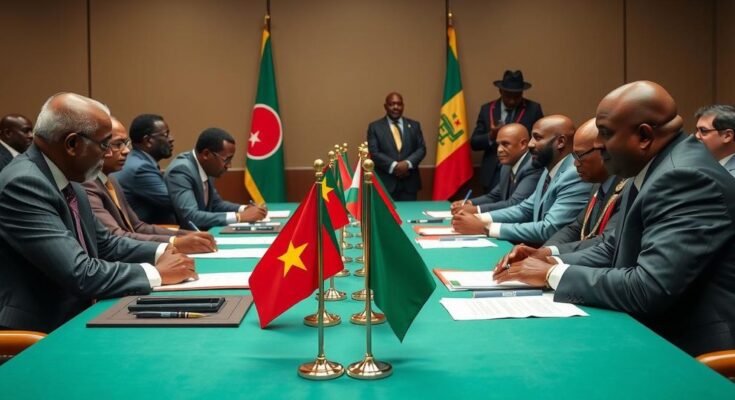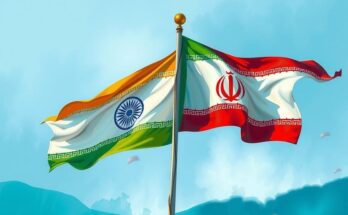The African Union called for the immediate implementation of a recently reached agreement between Somalia and Ethiopia aimed at resolving tensions over Ethiopia’s access to the sea. This agreement, facilitated by Turkey, follows a controversial deal between Ethiopia and Somaliland, which Somalia perceives as a violation of its sovereignty. Both nations have expressed intentions to work cooperatively, although concerns regarding the implications of the Somaliland agreement persist.
On February 17, 2024, the African Union (AU) called for prompt execution of a vital agreement between Somalia and Ethiopia aimed at alleviating tensions regarding Ethiopia’s access to the sea. The agreement follows Ethiopia’s controversial arrangement with Somaliland, a self-declared independent region of Somalia, to lease port facilities, which Somalia regards as a breach of its sovereignty. Urging immediate action, AU Chairman Moussa Faki Mahamat acknowledged the significance of the accord and highlighted the necessity of swift implementation. Negotiations, facilitated by Turkey, resulted in a commitment by both nations to advance their cooperation for mutual prosperity while maintaining Somalia’s sovereign authority over its coastal resources.
Despite the agreement, concerns persist regarding the ramifications for the prior arrangement between Ethiopia and Somaliland, which is yet to be fully disclosed. Additionally, Ethiopia’s Prime Minister Abiy Ahmed reiterated the country’s longstanding desire for coastal access but emphasized a preference for diplomatic solutions rather than military confrontation. As relations between Somalia and Ethiopia remain fragile, Somalia has fortified its ties with Egypt in response to regional tensions, indicating a complex landscape ahead as both nations navigate their new agreement with caution.
The dispute over Ethiopia’s access to the sea has been a longstanding issue, particularly following Eritrea’s independence in 1993, which left Ethiopia landlocked. The tension escalated in January 2024 when Ethiopia established a port agreement with Somaliland. This development sparked Somalia’s alarm over violations of its sovereignty, heightening fears of a possible conflict. The African Union’s intervention underscores the regional implications and the critical need for resolution to foster stability in East Africa. The involvement of Turkey as a mediator reflects growing international interest in facilitating dialogue between the two nations.
In conclusion, the African Union’s appeal for swift adherence to the recently signed agreement between Somalia and Ethiopia illustrates a vital step toward fostering peace and cooperation in the region. The complexities surrounding the prior Somaliland-Ethiopia deal remain a point of contention, as both parties navigate the intricacies of maintaining sovereignty while seeking economic and diplomatic advantages. The commitment to technical discussions in the coming months will be crucial in determining the effectiveness and sustainability of this bilateral cooperation.
Original Source: www.seychellesnewsagency.com




